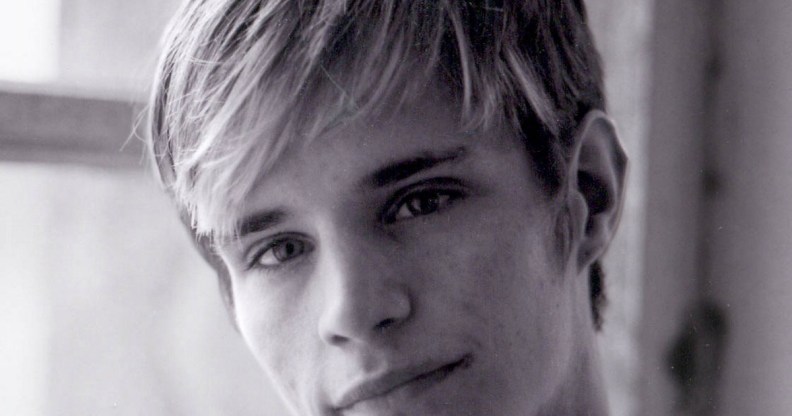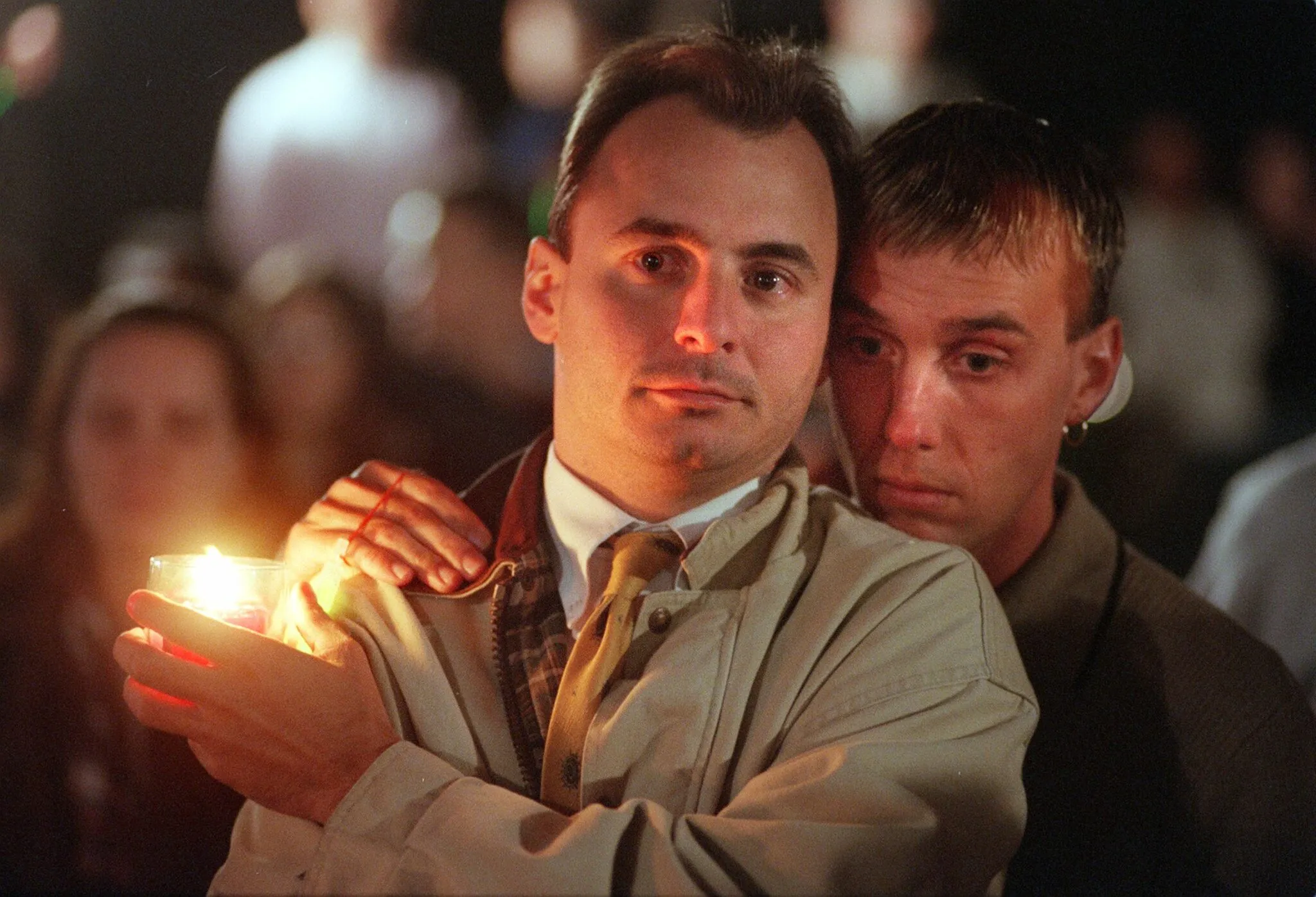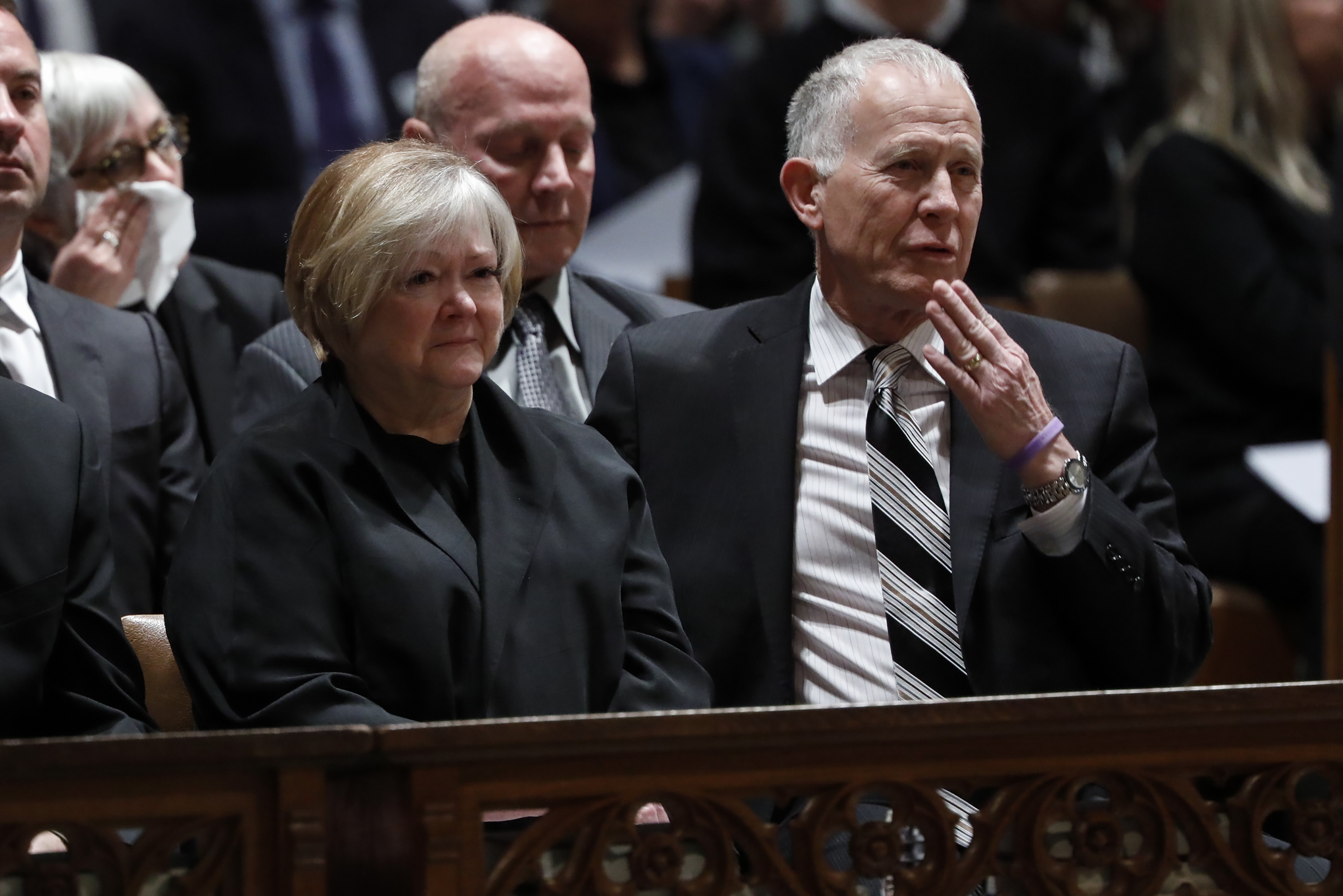Remembering Matthew Shepard, whose brutal murder sparked a reckoning on homophobia in America

21-year-old Matthew Shepard was brutally murdered in 1998. (Matthewshepard.org)
It’s now 23 years since Matthew Shepard was beaten, tortured and left to die in what remains one of the worst homophobic hate crimes in American history.
Matthew Shepard was a 21-year-old student, born 1 December 1976, at the University of Wyoming when he was brutalised by two young men he met in a dive bar in Laramie, Wyoming on 6 October, 1998.
They offered to give him a ride home, but drove him to a remote rural area where they beat him into a coma and tied him to a barbed wire prairie fence. Then they stole his shoes before abandoning him to the elements in near-freezing conditions.
Shepard was found 18 hours later by a cyclist who at first mistook him for a scarecrow. He’d been pistol-whipped so many times he suffered four skull fractures and a crushed brain stem. Reports described how his face was completely covered in blood, except where it had been partially cleansed by his tears.
“The only time I’ve ever seen those dramatic of injuries were in high-speed traffic crashes, you know, where there was just extremely violent compression fractures to the skull,” Albany County Sheriff Dave O’Malley told the BBC years later.
Shepard’s injuries were too severe for doctors to operate, and he never woke up after losing consciousness in that cold field in Wyoming. He died in hospital six days later.
The brutal attack shook the nation, with the New York Times likening the killing to the Western custom of nailing a dead coyote to a fence to ward off intruders.
It prompted a reckoning on tacit tolerance of homophobia, and Hollywood celebrities were quick to take on the cause. Ellen Degeneres attended a vigil on the steps of the US Capitol, Madonna complained to the University of Wyoming, Elton John sent flowers to the funeral and Barbara Streisand personally called the Albany county sheriff’s office to demand action.

Two men embrace each other at a vigil for Matthew Shepard in Washington DC (Andrew Cutraro/AFP/Getty)
As the killing made headlines around the world, it finally highlighted what LGBT+ Americans already knew too well – that the discrimination they faced was physical, violent and fatal.
And when the case went to trial it cast light on another uncomfortable truth: the shocking lack of hate crime protections for the queer community.
Incredibly, Shepard’s killers, Russell Henderson and Aaron McKinney, couldn’t be prosecuted for any homophobic motive because federal hate crime laws only encompassed a person’s race, colour, religion or national origin.
To add insult to injury, McKinney’s lawyers tried to invoke the “gay panic” defence, arguing he had only intended to rob him but Shepard had made him fly into a rage by touching his leg.
Fortunately the judge dismissed this shocking legal strategy and both killers are now serving two consecutive life terms for kidnapping and murder.
But the gay and trans panic defence still remains in 35 US states, with only 15 (plus the District of Columbia) to have banned it: California, Illinois, Rhode Island, Connecticut, Hawaii, Maine, Nevada, New York, New Jersey, Washington, Colorado, Virginia, Maryland, Oregon, and Vermont.
Everywhere else, a criminal defendant can actually claim that they found a victim’s sexuality or gender identity so frightening that they were provoked into violence, and argue diminished responsibility on this basis.
Matthew Shepard didn’t die in vain
Shepard’s parents Judy and Dennis simply refused to accept the gaping flaws in the US legal system. Mobilised by their son’s death, they both became LGBT+ activists, and in December 1998 they established the Matthew Shepard Foundation in his name.
As president of the foundation Judy Shepard has kept her son’s memory alive through a campaign for acceptance and legal equality, speaking at more than 900 events in 25 countries.
After a decade of campaigning from the Matthew Shepard Foundation, in 2009 President Obama signed the Matthew Shepard and James Byrd Jr Hate Crimes Prevention Act, named jointly in honour of Shepard and a 49-year-old Black man murdered by white supremacists.
At long last this created federal-level hate crime protections for crimes based on gender, sexual orientation, gender identity, or disability.
In honour of her work, Matthew Shepard’s university presented his mother with its highest award: the honorary Doctor of Humane Letters degree.
“What Judy has done in the 20 years since her world was forever changed is nothing short of extraordinary,” said Philip Dubois, who was president of the University of Wyoming at the time of Shepard murder.
“Rather than allowing her grief and (others’) hate to consume her, she drew strength from it and emerged as a true modern-day civil rights leader.
“Her tireless work on behalf of the LGBTQ community has brought about important change and has inspired and encouraged countless individuals.”


